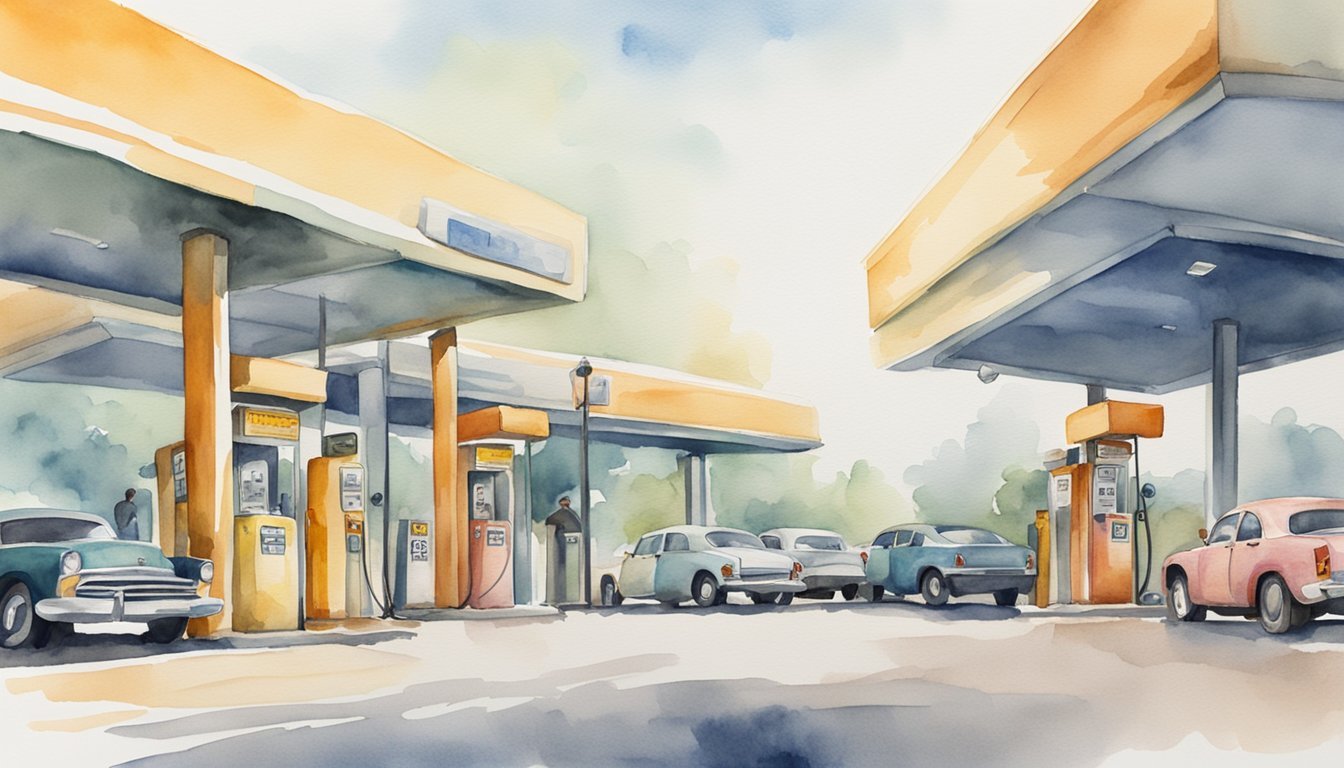Causes of Gas Shortages
Gas shortages can occur for a variety of reasons, ranging from cyberattacks on pivotal infrastructure to disruptions within the market. Understanding these causes helps to mitigate their impacts and prepare for potential occurrences.
Cyberattack on Pipeline Operations
In May 2021, the Colonial Pipeline, a crucial conduit for delivering energy supplies, suffered a ransomware attack by DarkSide, a cybercriminal group. This incident halted operations, straining gas supply across the East Coast of the United States. Cybersecurity for critical infrastructure has since become a focal point for the energy sector.
Market and Supply Chain Dynamics
The gas supply chain is sensitive to disruptions, whether due to natural disasters, geopolitical events, or logistical challenges. For instance, a shortage of tanker truck drivers was highlighted as a potential risk for gas availability during the summer season. Such market dynamics underscore the fragility of the supply chain and the possibility of gas shortages if any segment is affected.
Government and Regulatory Response
In response to the pipeline cyberattack, the Biden administration acted swiftly to alleviate the immediate effects of the shortage. Emergency measures and regulatory interventions are typical government tools to stabilize the situation. Additionally, the incident under President Biden’s watch brought attention to the importance of reinforcing the nation’s energy infrastructure against cyber threats.
Impact and Response to Fuel Shortages

The fuel shortages experienced in various regions highlight the fragility of energy infrastructure and the cascade of effects on the economy and daily life. Immediate responses by government and behavioral shifts by consumers aim to mitigate the impact, underscoring the importance of strategic approaches to fuel management.
Consumer Behavior and Panic Buying
The onset of shortages often triggers a surge in panic buying, overwhelming gas stations as consumers flock to the pumps in fear of running out of fuel. The GasBuddy app, a platform used to track gas prices, witnessed record downloads as motorists in affected areas such as the Carolinas and Georgia sought to find the nearest stations with available fuel. This behavior exacerbates shortages, leading to longer lines and even temporary closures at many gas stations due to depleted supplies.
Economic and Environmental Considerations
Fuel shortages have direct economic implications, including increased gas prices and the potential for wider economic disruption if the transportation of goods is hampered. In the Southeast, including states like North Carolina, South Carolina, Virginia, and Georgia, the rapid increase in demand for gasoline and diesel led to a spike in “rack prices,” the cost to purchase fuel wholesale. Beyond economics, there’s an environmental toll as well, as frantic refueling leads to inefficient gas usage and potential fuel spills.
State and Federal Mitigation Efforts
In response to the crisis, state governors and the federal government enacted various mitigation efforts. Several states declared a state of emergency, with governors issuing executive orders to relax transportation regulations to expedite fuel deliveries. Energy Secretary Jennifer Granholm assured the public that the pipeline was close to returning to normal operation. She also urged consumers to avoid hoarding gas. On a federal level, FEMA and other agencies were involved in coordinating responses to ensure a continued supply of fuel.

